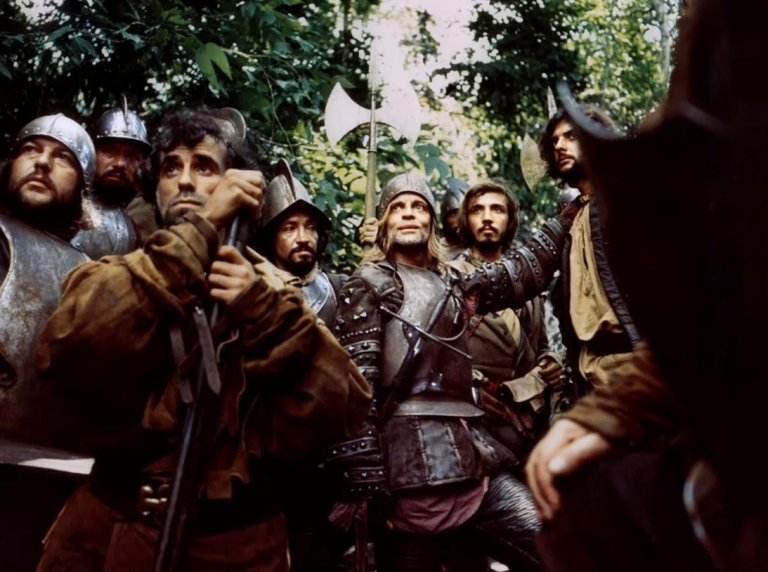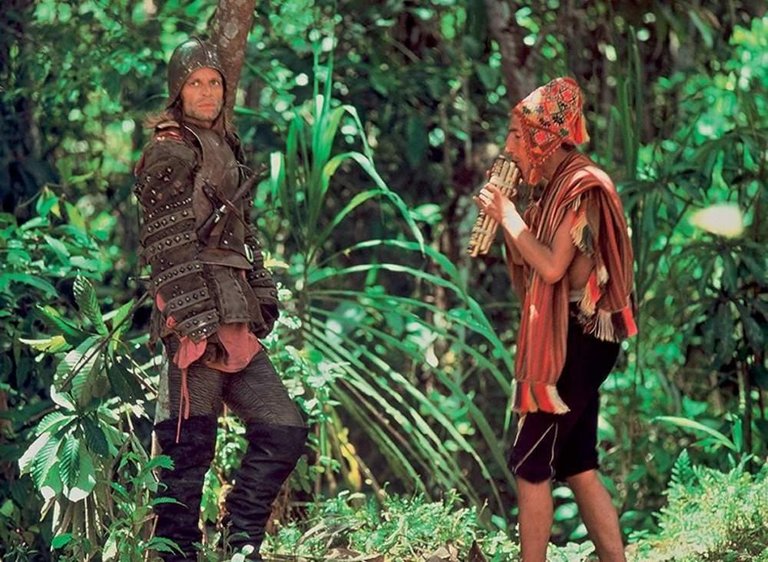Aguirre, the Wrath of God, a landmark of the New German Cinema

Image
Werner Herzog's Aguirre, the Wrath of God is a mind-bending descent into one man's madness, an unforgettable cinematic experience that has rightfully earned its place among the greatest achievements in film history.
Through sparse but evocative images and extraordinary filming in the jungles of Peru, Herzog creates a haunting vision of a doomed expedition that fades into the lush terror of the Amazon.
Klaus Kinski is mesmerising in the title role, his unbalanced performance a masterclass in controlled mania.
With no soundtrack or sound effects, we are immersed in the latent intensity between the men and their ravaged environment.

Image
Flavio's photography, which combines sharp detail and feverish soft focus, vibrates with a primal mysticism.
As Aguirre's ego and thirst for power consumes him, the film becomes an unhinged existential quest that is more like witnessing an authentic historical descent into hell than an ingenious reenactment.
Herzog, both behind and in front of the camera, searches for meaning at the extreme margins of human endurance.
Nothing less than a landmark of the New German Cinema, Aguirre, the Wrath of God endures as one of the most disturbing and nightmarish visions ever brought to celluloid, a hypnotic journey into the maddening heart of darkness impossible to forget. A true work of avant-garde genius.

Image
Aguirre, Wrath of God received mixed reviews on its initial release in 1972, but was soon recognised as the influential tour de force that it is.
Kinski's fierce commitment to the role also received retrospective praise, though the volatile production lives on in film history.
Financially, it performed moderately for its budget of less than $360,000, grossing $1.2 million worldwide, more than three times what it cost thanks to the passionate support of art-house cinemas around the world.
The Cannes Film Festival embraced its feverish visions, winning a Special Jury Prize that helped fuel interest.
Although it has rarely been traditionally nominated, groups such as the National Society of Film Critics and the Cinematheque Awards have recognised its nightmarish brilliance.
0
0
0.000
0 comments